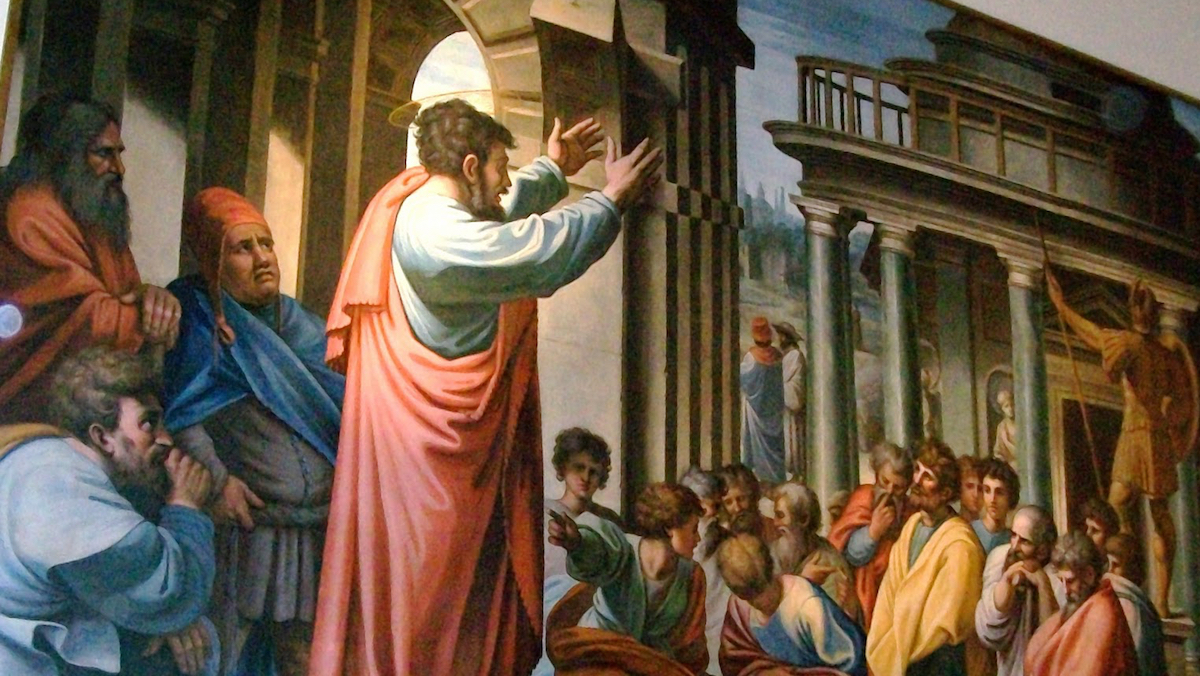Once there was an unhappily married woman—we’ll call her Jane—who, at a young age, had married a handsome, dashing, but self-centered man we’ll call Alphonse. Her family and friends had warned her that Alphonse had a mean, dominating, personality—but Jane wouldn’t listen; she was “in love.” It turned out that Jane’s family members and friends knew what they were talking about; Alphonse believed that, as the husband, his word was law, and he expected Jane to wait on him hand and foot. He demanded that she get up early each morning, before he arose, and have a hot breakfast ready for him; she had to make his lunch exactly the way he wanted for him to take along to work, and have supper ready as soon as he returned late in the afternoon. Moreover, he had very exacting standards when it came to her doing the laundry, cleaning the house, paying the bills, and having his pipe, slippers, and newspaper in place for him after supper. Alphonse also insisted on a strict accounting of every dollar she spent, and of every minute she spent away from the house.
After Jane had suffered through all this in silent resentment and fear for a number of years, Alphonse suddenly died. Jane mourned for him, for she still had some love for her deceased husband, but when she met a very nice man, a widower named Malcolm, less than a year later, she didn’t feel at all guilty when they began dating. The romance blossomed—in part because Malcolm was just the opposite of Alphonse, always being tender, kind, and considerate. The two of them eventually married, and Jane experienced a happiness she had never known before. One day, while she was cleaning out some of her first husband’s belongings, she came across a list Alphonse had made of all the things he demanded his wife do for him. Jane realized with amazement that she was now doing all these same things for Malcolm, but without any resentment or any sense of being required to do them. Jane was now acting not out of obligation or fear, but serving voluntarily out of love (Roy B. Zuck, The Speaker’s Quote Book, p. 236). We as Christians are supposed to act out of this same motivation: not fear, and not obligation or duty, but love—for Jesus makes it very clear that this is the mark of His disciples.
In the Gospel of John (13:31-35) we hear these words: “When Judas had left them. . . .” Judas Iscariot was the only person at the Last Supper whose heart was closed to divine love—and he ended up not only committing the most sordid act of betrayal in human history, but later hanging himself in guilt and despair. Closing oneself off to God’s love results in spiritual suicide or self-destruction, but living in the spirit of this love eventually allows us to share in the glory of God Himself. That’s why Jesus emphasizes the importance of love so strongly as to call it a new commandment; loving other people is an essential part of accepting the gift of salvation for ourselves and proclaiming the Good News of salvation to others. Saints Paul and Barnabas (Acts 14:21-27) warned their converts, “It is necessary for us to undergo many hardships to enter the kingdom of God”—but love gives us the courage and strength to endure whatever may come. In the Book of Revelation (21:1-5), St. John heard a voice from Heaven proclaim, “. . . there shall be no more death or mourning, wailing or pain, for the old order has passed away,” and then the One Who sat on the throne said, “Behold, I make all things new.” God has the power to recreate not only our lives, but our very selves—if we agree to this wondrous miracle by our willingness to love Him and our neighbor.
The cathedral in Florence, Italy, is almost 700 years old, and is a building of exquisite beauty and elegance. In one of the windows up in the rotunda, or dome, the builders inserted a small iron ring, placing it so that on a certain hour each year on a certain day in June, the rays of sun would shine through the ring and touch a brass plate embedded in the floor below. If the ray of sun touches the brass plate at that exact hour, inspectors have visible proof that the cathedral is still in line and as upright as when it built all those centuries ago (Msgr. Tonne, Stories for Sermons, Vol. 2, #82). In the same way, we have a foolproof way of measuring or gauging whether or not we are truly followers of Christ, destined to live with Him one day in Heaven: do we love other people in His Name, including those we dislike and even our enemies? Only if we do are we “in line” with His teaching; only if we have this love are our lives set on a solid spiritual foundation.
Society today promotes the myth that love is merely a feeling, an emotion which comes and goes and over which we have no control. The truth, however, is this: love is a decision. We can choose to love others, even without feeling any affection for them or any desire to spend time with them. This is the type of love Jesus is talking about: a genuine concern for the well-being of others, culminating in our desire that they too end up rejoicing for all eternity in Heaven, even if they’re making us miserable down here on earth. We’re supposed to have this love for our families and friends, but also for strangers, rivals, and enemies, along with the people we dislike or find annoying, rude, or obnoxious. After all, if Jesus loved them enough to die for them on the Cross, it’s not too much for Him to ask that we pray for their spiritual well-being and eternal salvation. Loving others—including the people we dislike—means treating them with respect, acknowledging their dignity and value as a child of God and a potential citizen of Heaven, and using the opportunities we’re given to share the Gospel with them, whether through our words or example. The early Christians were recognized by the pagans as followers of Jesus because of their love for one another, and this should also be said of us. As Jane discovered, love helps us make sacrifices for others in a generous, self-giving way, rather than acting merely out of obligation. This is how Jesus wants us to live, and if we haven’t come close to achieving this approach, He invites us to ask Him to fill us with His Holy Spirit—a Spirit of love, joy, and peace. Chances are you and I will never leave our mark on the world by building a magnificent cathedral, like the one that stands in Florence—but we can choose to leave behind us a legacy of love, and Jesus promises this is a legacy that will endure.








